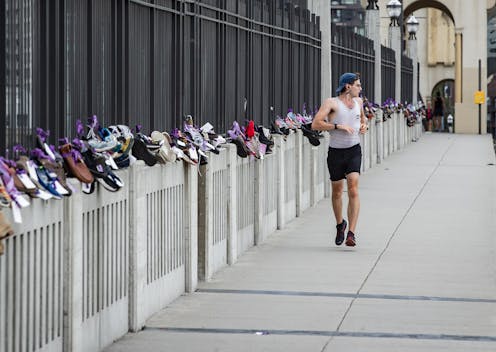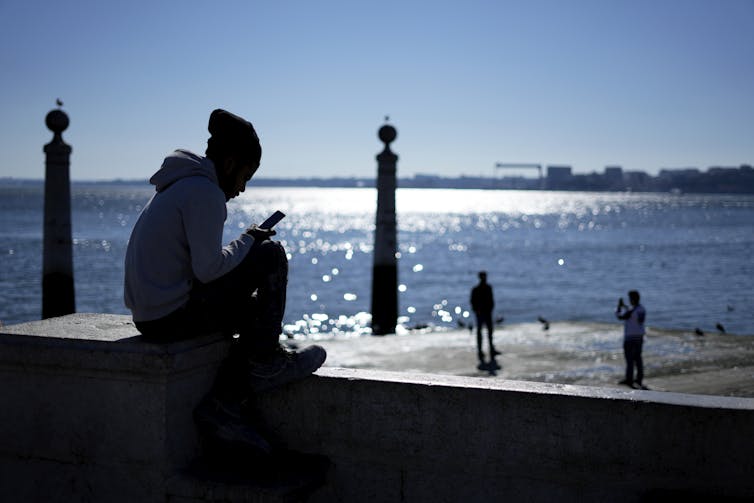
Substance use disorder is a chronic but treatable medical condition.
Unlike other physical and mental health conditions, however, substance use disorder — or addiction — has historically been seen as a moral failing and was for many years relegated to the fringes of the medical community.
Instead of receiving treatment in an accessible medical setting, many individuals went untreated or turned to a largely unregulated system of public and private treatment options. Drug use was criminalized and because many still believe that people who use drugs are engaging in deliberately deviant behaviour, we often choose to punish, rather than treat, drug addiction.
That’s why British Columbia’s recent move to eliminate criminal penalties for the possession of small amounts of illicit drugs for personal use is an important step toward the decriminalization of addiction.
The dangers of stigma
Policies that label drug users as criminals only enhance the stigma experienced by people attempting to manage a debilitating and sometimes life-threatening health condition, and in many cases hamper or even prevent them from receiving appropriate medical treatment.
Stigma surrounding drug use and addiction has an enormous impact on the social determinants of health and treatment outcomes for individual users. Criminal convictions stemming from drug use can impact someone’s ability to secure housing and employment. And perceptions of stigma and discrimination can prevent or delay people with substance use disorders from seeking treatment.
A recent study found that nearly half of respondents reported perceiving stigma because of their addiction from friends and family, from work colleagues and even from medical providers.
In some cases, fear of negative opinions from people in their social circles is one reason people who know they need help with substance use do not pursue treatment.
Instead of receiving treatment, many individuals with addiction go untreated, and for some of them, their first exposure to treatment can come as a result of involvement with the criminal justice system.

A recent report found that three in four people in prison in B.C. have a substance use disorder or other mental health condition, and half of federal prisoners report that their arrest was in some way related to substance use.
And while most incarcerated people do have access to some form of treatment, much of that treatment is not based on best practices and the experience of incarceration can worsen their addiction and their physical and mental health.
Improving treatment options
Decriminalization has an important role to play in recharacterizing addiction as a chronic health condition instead of a criminal activity, reducing the stigma associated with drug use and improving treatment options for this vulnerable population.
Studies in Portugal, which decriminalized all illicit drugs in 2001 and shifted to a harm-reduction approach to substance use, have shown significant reductions in drug-related illnesses and mortality.
Importantly, resources that were previously devoted to the prosecution and imprisonment of drug users in Portugal are now available for treatment. And because the public has witnessed these improvements, there has been no substantial push to return to a criminal model of drug use.

B.C.’s decision to decriminalize the possession of only small amounts of drugs is not without its critics. Many point out that the allowable amount of drugs, 2.5 grams, is less than a daily supply for many, and is especially unhelpful for those who must travel long distances to purchase drugs.
Harm reduction disappointments
Other harm reduction strategies that have been implemented since B.C. declared drug use a public health emergency in 2016 have often come up short. Safe supply programs have been limited to a small number of users, and safe consumption sites have been unavailable to users who smoke, even though inhaled drugs account for many drug-related overdoses in the province.
It’s also still difficult for many people who do seek treatment for addiction to find available treatment providers in the community.
Notwithstanding these ongoing challenges, the criminal justice system is not the appropriate place to treat people with addiction — and decriminalization represents a choice to respond with treatment, not punishment.
While B.C. has a long way to go in its approach to the treatment of addiction, decriminalization is an important step toward reducing the stigma associated with drug use. In turn, it will improve individual outcomes and reduce the significant impact that the criminalization of drugs has on public health.
Sara Gordon does not work for, consult, own shares in or receive funding from any company or organization that would benefit from this article, and has disclosed no relevant affiliations beyond their academic appointment.
This article was originally published on The Conversation. Read the original article.







